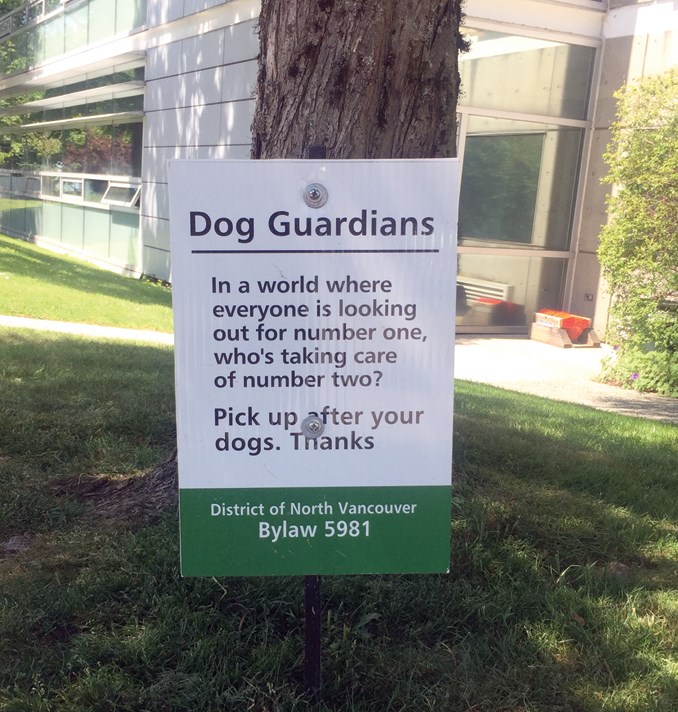Dog ownership is on the upswing on the North Shore with a steady increase of new dogs being licensed each year. It’s estimated that one in every four homes in the district has at least one dog.
Our furry friends may be adorable, but the waste they create is not. In fact, dog waste is extremely toxic and full of bacteria that is harmful to humans, the environment, and other animals.
The misconception that dog waste is an organic compound means that toxic waste is often disposed of improperly, finding its way into public spaces and polluting our forests.
With more people across the region living in smaller, denser areas, those with dog companions have fewer options for their dogs when it comes to roaming and depositing their waste. In turn, certain spaces outside of multi-family dwellings can become toxic mine fields of dog urine and feces.
North Shore greenspaces are also popular destinations for dog owners to take their pets for outdoor adventures. With growing numbers of dog visitors, more waste is being deposited either directly into sensitive forest ecosystems or into garbage receptacles.
Up to 80 per cent of park garbage in high dog-use parks is dog waste. When this waste is taken to a transfer station and pushed through compactors, it needs to be managed carefully to ensure workers’ health and safety are not compromised.
So what can be done? There are a couple of things we can all do to keep our public spaces clean and healthy for all to enjoy.
Firstly, as a dog owner, make sure your dog is licensed for the district. The small annual fee you pay for a license helps fund animal welfare services in our community and also greatly increases the chance that your dog will be returned to you if lost.
Secondly, clean up after your dog and dispose of its waste properly. Think about how frequently you may use public spaces, such as small boulevards, to let your dog relieve itself. By not concentrating your dog’s waste (even if cleaned up after) in small spaces, you reduce the health risks to yourself and your neighbours.
As local government, we try to steer people toward responsible ownership by changing behaviours and providing the tools to do so. Enforcement is one kind of behaviour change tool that can be used. For example, if your dog is found not licensed or impounded, you can face fees up to $172.50. If you are found not cleaning up after your dog in a public space you will be met with a $100 fine.
As local government we are implementing new solutions to make it easier for dog owners to clean up after their pets. In the district, we provide dog waste collection bags in some of our high- traffic dog parks. Our parks department is also piloting a dog waste disposal program to divert dog waste from the regular garbage stream.
Also, as urban centres become denser, some developers are including pet amenities within their new buildings. Pet washrooms and dog runs allow multi-family developments to remain pet friendly yet prevent dogs from using public spaces as washrooms.
Having a dog is a happy, fulfilling experience but it is also a lot of work and a big investment of your time. Part of being a good neighbour and a responsible citizen is knowing the impact your dog may have on the environment and also being aware of non-dog owners’ rights. It is a privilege, not a right, to own a dog.
For more information on licensing your dog in the district, please visit dnv.org/dog-licence.
This article is dedicated to former District of North Vancouver employee Cameron Stewart who passed away earlier this year. Cameron’s knack for design and great sense of humour earned his work international recognition, with his signs encouraging good dog ownership used on lawns around the world. We are proud to have worked alongside Cameron for his 14 years at the district.



